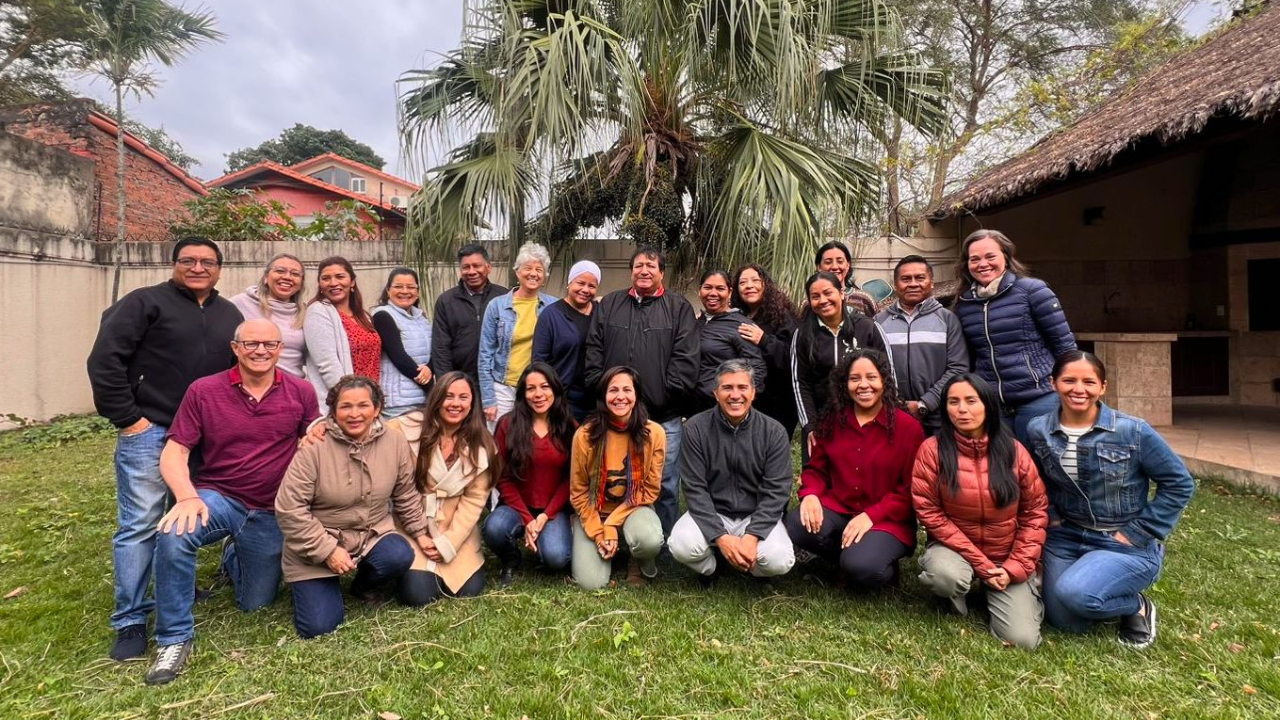The event brings together educators, young leaders, and key organizations from across the Amazon Basin.
From July 29 to 31, 2025, Santa Cruz de la Sierra, Bolivia, will host the international workshop “Transforming Institutions to Empower New Conservation Leaders in the Amazon.” This initiative is part of the Power of Connections Project: Harvesting Lessons and Strengthening Coalitions for Amazon Conservation, led by the Tropical Conservation and Development (TCD) Program at the University of Florida and supported by the Gordon and Betty Moore Foundation.
This event, organized by TCD in collaboration with the Bolivian Forest Research Institute (IBIF) and the Naturae Center of the Pontifical Catholic University of Ecuador (PUCE), aims to promote dialogue, collective learning, and collaboration among various Amazonian actors to strengthen youth capacities in conservation. Over three days, participants from across the Amazon Basin will share experiences, educational methodologies, institutional trajectories, and common challenges related to the development of new leadership.
According to María Fernanda Checa, Director of the Naturae Research Center at PUCE, and one of the workshop thematic experts, “the current deepening of the socio-economic and environmental crisis requires innovative and democratic solutions that emerge from a true dialogue of knowledge that fosters collaboration among institutions, communities, and individuals for the development of new leaders.”
“Youth today are more mobilized than ever through collaborative networks and are finding new ways to participate and contribute to the defense of their territories,” says Marlene Soriano Candia, Director of the Inclusive Socioeconomic Development Program at IBIF and the workshop thematic expert. “Our motivation is to create a genuine space for exchange and reflection to reassess how, from our institutions, we support Amazonian youth.”
Each participant will arrive with an innovative idea and is expected to return to their home institution and indigenous communities with new learnings, connections, and commitments. The workshop’s methodological design will combine horizontal exchange spaces, experiential exercises, and moments of institutional reflection.
The first day, titled “Getting to Know Each Other and Amazonian Educational Realities,” focuses on sharing trajectories, contexts, and institutional approaches that have shaped leadership development in different countries. The second day, dedicated to “Experiential Methodologies,” seeks to highlight innovative pedagogical approaches used by networks, universities, and community organizations in the Amazon. The third day, under the theme “Weaving Networks for Action,” seeks to consolidate alliances and envision new forms of Pan Amazonian collaboration.

For Carolina Simon-Pardo, a PhD student at the University of Florida, this workshop arises from the need to ask ourselves how we are educating and how we need to educate to ensure the leadership of future generations in conservation. “We will reflect on the type of education Amazonian youth need, in both urban and rural contexts, to exercise leadership in conservation without losing the knowledge and values that sustain care for their territories,” she adds.
The event brings together educators, youth leaders, Indigenous authorities, researchers, and representatives of public institutions and civil society. This diversity of trajectories and knowledge seeks to create a plural, horizontal, and transformative space at all academic levels, within both traditional and non-traditional educational settings.

“Our responsibility as educators is to rethink a transformative and holistic education for new empathetic leaders who are agents of change,” says María F. Checa. “Institutions need to adopt new approaches that recognize youth as strategic allies. They are already taking action, from socio-productive projects to environmental monitoring, and we must find mechanisms to connect with them,” emphasizes Marlene Soriano.
For Carolina Simon-Pardo, the impact of the workshop goes beyond the three days of activities: “We want each participant to take away an innovative idea to implement in their community and for the connections made here to turn into lasting collaborations.”
This workshop is part of a series of regional meetings that will take place throughout 2025 in various countries of the Amazon Basin. The lessons and connections generated will contribute to the collective construction of a regional roadmap that will be discussed at the Amazon Summit at the University of Florida, scheduled for 2026.
More information about the project: https://amazonconservationconnections.com/es/. This project is funded by the Gordon and Betty Moore Foundation through Grant GBMF13270.
About the Tropical Conservation and Development (TCD) Program
The mission of the Tropical Conservation and Development (TCD) Program is to connect theory and practice to promote biodiversity conservation, sustainable natural resource use, and human well-being in the tropics and beyond. TCD is a research and training program of the Center for Latin American Studies at the University of Florida, with 10 core faculty members and approximately 100 affiliated professors across the campus. The program has a long history of collaboration with partner organizations in the Amazon and of supporting networks of conservation professionals committed to sustainable development.
About the Gordon and Betty Moore Foundation
The Gordon and Betty Moore Foundation promotes scientific discovery, environmental conservation, and the special character of the San Francisco Bay Area. Since 2001, its Andes-Amazon Initiative has helped conserve more than 400 million hectares in the Amazon. By 2031, the initiative aims to ensure that 70 percent of the Amazon biome (forest cover) and the freshwater ecosystems that sustain it are under effective management and conservation.
Visit Moore.org and follow @MooreFound to learn more.

